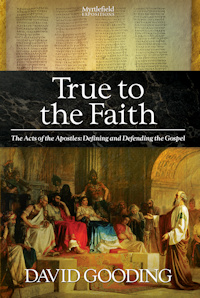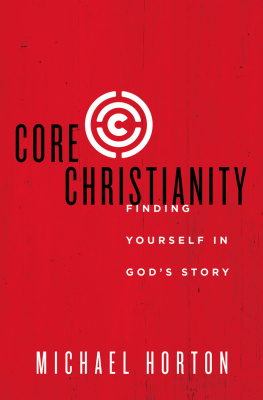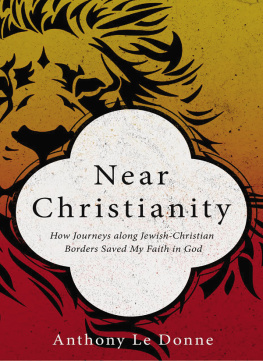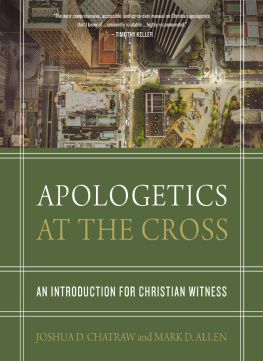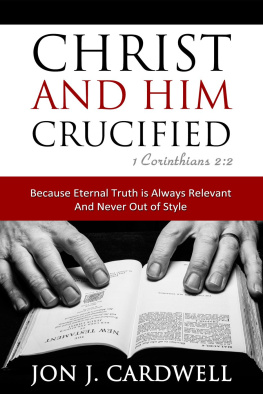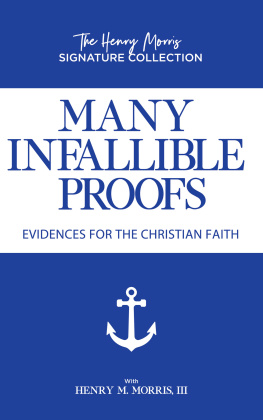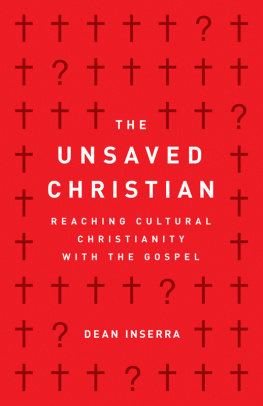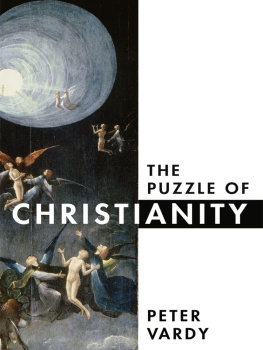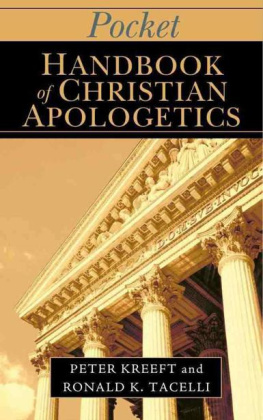David Gooding and John Lennox have asserted their right under the Copyright, Designs and Patents Act, 1988, to be identified as Authors of this work.
Myrtlefield Trust, 1992, 2014
All rights reserved. No part of this publication may be reproduced, stored in a retrieval system, or transmitted, in any form or by any means, electronic, mechanical, photocopying, recording or otherwise, without the prior permission of the publisher or a license permitting restricted copying. In the UK such licenses are issued by the Copyright Licensing Agency, 90 Tottenham Court Road, London W1P 9HE.
All Scripture quotations, unless otherwise indicated, are taken from The Holy Bible, English Standard Version, copyright 2001 by Crossway Bibles, a division of Good News Publishers. Used by permission. All rights reserved.
Cover design: Ben Bredeweg.
Cover photo: Alan Lesheim. Used by permission.
First published 1992. Originally published as a series of articles in the Russian newspaper, Uchitelskaya Gazeta. Chapter 7 was previously published in The Bible and Ethics. Second English edition, revised and enlarged, 2014
Published by The Myrtlefield Trust,
180 Mountsandel Road,
Coleraine, N Ireland, BT52 1TB
w: www.myrtlefieldhouse.com
e:
ISBN: 978-1-874584-53-7 (pbk.)
ISBN: 978-1-874584-54-4 (PDF)
ISBN: 978-1-874584-55-1 (Kindle)
ISBN: 978-1-874584-56-8 (EPUB without DRM)
This book contains all the material from the original print edition, but because e-readers don't generally support the more complex layouts of print some material is structured differently, and may be placed in a different position. If the book contains complex tables you will be given an external link to the Myrtlefield House web site to access a PDF document that contains the tables exactly as they appear in the print edition.
Myrtlefield House e-books are best viewed with the publishers settings for fonts and styles. You may have to adjust the settings of your e-reader to get the best display.
Navigation
The principal means of navigation is by hyperlinks, but please be aware that not all e-readers support every kind of link.
The . References in the main text to major parts or chapter section are also hyperlinked to the start of that part.
References to page numbers are hyperlinked to the relevant paragraph on the original print page. As an aid to cross-referencing with the print edition, the position of the top of each page is marked in the main text like this: |99| . A hyperlinked list of pages is provided in the section.
Footnotes are displayed in the text as hyperlinked, superscript numbers (e.g. 1). Selecting the number will display the footnote text. The footnote number at the start of the note is hyperlinked to return to the location of the footnote reference in the main text. On some e-readers you may need to use the device's back button to return.
Indexes from the print version are included, and the page numbers are hyperlinked to jump to the relevant paragraph in the main text.
Myrtlefield Encounters
Myrtlefield Encounters are complementary studies of biblical literature, Christian teaching and apologetics. The books in this series engage the minds of believers and sceptics. They show how God has spoken in the Bible to address the realities of life and its questions, problems, beauty and potential.
Christianity
Opium or Truth?
David Gooding
John Lennox
Myrtlefield
ENCOUNTERS
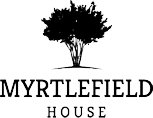
MyrtlefieldHouse.com
|v|
Contents
1.
2.
3.
4.
5.
6.
7.
8.
and John Lennox
|1|
from reaching its full potential.
The Marxist cure was first to jettison all religion and then, starting with man as man in the spirit of true humanism, to set about the formation of a new man. In 1961, the Communist Party of the USSR stated:
Interestingly enough the New Testament agrees with Marxism, in this particular at least, that religious rituals and disciplines and moral effort are all insufficient: nothing avails except the creation of a new man (see 2 Cor 5:17; Eph 2:810; 4:2224). Of course, Marxism and Christianity will disagree over what is wrong with the old man, over what kind of new man is desirable, and over the means of |3| introducing the new man. But more of that later. For the moment let us return to the question of opium.
If it is true that in some centuries and in some countries religion has acted like a sedative, it is also true that in this century and the last humanistic philosophies, both of the right and of the left, have acted like powerful stimulants. Their promises of a future utopia have galvanized peoples innate sense of right and wrong into heroic action and sacrifice to help bring about the promised utopia. In this cause during the last century millions have died. But the promised utopia was not achieved. It seems further off than before. As far as these millions of dead people are concerned, the hopes raised in them by these humanistic philosophies, for which they gave or were robbed of their lives, have proved to be delusions.
What then shall we say about this instinctive sense of right and wrong which all of us have, which makes us feel that we have a right to justice, and which drives many people to struggle to obtain it? Obviously it was not implanted in human beings by religion, for atheists have it as keenly as believers in God. Where then does it come from? And how valid a guide is it for expecting that justice will one day triumph?
The Bible says that it has been implanted in us by God our Creator. All his divine authority stands behind it. And though in us and in our world it is often suppressed, distorted, frustrated and cheated as a result of humanitys sin and rebellion against God, it will one day be vindicated. God is going to judge this world in righteousness through Jesus Christ, and there will also be a final judgment. Justice will be done for all who have ever |4| lived on this earth (Acts 17:31; Rev 20:1115). Here, then, is tremendous assurance. It is worthwhile striving for justice and standing against sin, evil and every kind of corruption. Our sense of right and wrong is valid: it is not an illusion.
But no, says humanism, our sense of right and wrong is not as significant as that: it is simply the product of evolutionary development. Then there can be no guarantee that it will be satisfied in the case of any particular individual or of any particular generation! And since there is no God, and since there will be no final judgment, the millions who suffered unjustly on earth in the past, will not find justice even in the life to come, for there is no life to come. Moreover, for millions still living, the hope of justice in this life or the next will likewise prove a mocking delusion. What kind of an incentive is that for struggling for justice now, or even for some future utopia which like all those promised through history might never come anyway? It is not a stimulant. It is not even a sedative. It is a depressant.
But let us now consider the proposition that nothing avails except the formation of a new man. Here the Bible would whole-heartedly agree with Marx against many forms of popular religion. The Bible teaches that man is basically evil. His heart is deceitful above all things and desperately sick ( Jer 17:9). Nothing, not even the best of religious rituals or disciplines, nor even mans honest moral endeavour, can cure mans evil heart and make man acceptable to God or a fit citizen of any utopia. Nothing, that is, except the removal of mans evil heart and its replacement by a new heart, by a new spirit; in other words nothing but the creation of a new man through personal repentance |5| and faith in the crucified and risen Son of God leading to reconciliation with God, forgiveness and a new life (Ezek 36:26; Titus 3:17; 2 Cor 5:17; Eph 2:810).

